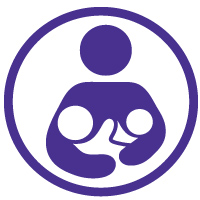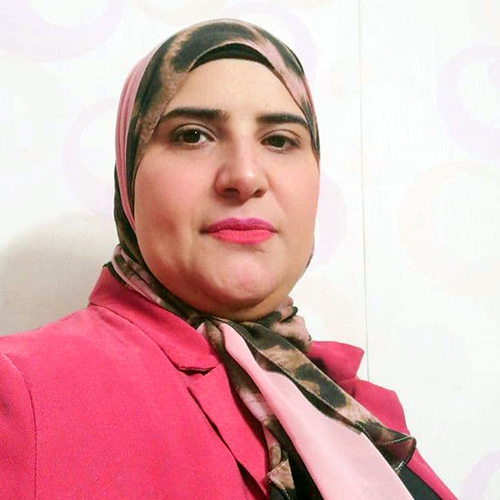 IBCLC Detailed Content Outline: Development and Nutrition / Infant Focused CERPs - Section I A
IBCLC Detailed Content Outline: Development and Nutrition / Infant Focused CERPs - Section I A
Access CERPs on Development and Nutrition / Infant for the IBCLC Detailed Content Outline recertification requirements. On-demand viewing of the latest Development and Nutrition / Infant focused IBCLC CERPs at your own pace.
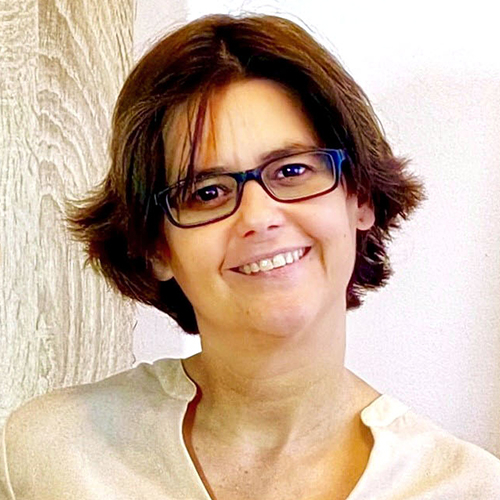
Movement: The Brain's Power Boost for Learning

Carlota López-Peredo has a Bachelor’s degree in Biochemistry and Special Needs Education from Madrid Complutense University. She is an inspirational trainer, the owner of a clinic in Madrid, and the Program Liaison for Breakthroughs International. As a certified International Faculty for both the Brain Gym® and Movement Based Learning programs, Carlota provides experiential training worldwide for educators, families, caregivers, developmental specialists, and others, providing a large range of tools focusing on early intervention, developmental delays and disorders, as well as learning disabilities.
After working in the classroom for five years, she opened a clinic for developmental delays and learning difficulties. At her clinic, parents appreciate her commitment, connection with the children and professionalism. In her classes, her students enjoy the passion she communicates when teaching, and her ability to make learning a fun process. Carlota's passion is helping families and educators using designed movements to enhance the individual developmental foundation and reach a higher functioning level.
This talk will focus on the Movement Based Learning (MBL) program and how it can be used by healthcare professionals, as well as families, to support a healthy and efficient early childhood development. The MBL designed movements can be used as an effective tool to help develop motor, cognitive, and emotional skills in children, supporting them to successfully navigate through the developmental milestones. Practical MBL tools will be shared with the participants that can be implemented in the children's daily lives to help them reach their full potential.

Navigating Pathways to Breastfeeding Success in the Late Preterm Infant

Dr. Nastassia Harris is a licensed registered nurse with over 15 years’ experience in perinatal nursing and became an International Board Certified Lactation Consultant in 2009.
Nastassia serves as an assistant professor in the school of nursing at Montclair State University. Over her career Nastassia developed a passion for eliminating disparities in black infant and maternal health. In 2018, she went on to found a nonprofit, the Perinatal Health Equity Foundation where she serves as the executive director. Through the nonprofit, Nastassia established Sistahs Who Breastfeed, a breastfeeding support group for black women which operates in several NJ cities.
She is active in several committees and organizations including the Association of Women's Health Obstetrics and Neonatal Nursing and the Black Mamas Matter Alliance. Nastassia's research and clinical interests include implicit bias/racism in healthcare, breastfeeding in the black community, obstetrical violence, high risk OB, and reproductive justice.
Topic: When It's Time to Let Go... Stories of Weaning - [View Abstract]
Breastfeeding the late preterm newborn (34 0/7 to 36 6/7 weeks) presents unique challenges that differ from that of a health full term baby. By nature of their immaturity, late preterm infants are at higher risk for developing jaundice, hypoglycemia, falling sleeping during feedings, and being difficulty to wake. Unfortunately, this also puts them at a greater risk for formula supplementation, despite a family’s desire for exclusive breastfeeding. This presentation will help to illustrate the challenges in breastfeeding the late preterm infant, and techniques for preserving exclusivity in the hospital and post discharge.


Dr. Bond is a trained laboratory and social scientist currently studying the social and public health impacts of shared human milk. Specific areas of interest include development of the microbiome of the infant, immunological responses from the parent and infant, impacts of non-parental human milk on development of the immune response and microbiome, and risk abatement practices by participants in private arrangement milk sharing. She has been specifically trained in health disparities sciences and engages in research with a perspective on social justice, gender equity, and health equity. As a Hawaiian and Cherokee heritage scholar, she has a particular passion for colonial impacts on infant care and feeding practices.
In the absence of adequate banked donor human milk for distribution to all infants in need, many families choose to engage in the practice of Private Arrangement Milk Sharing (PAMS), partially facilitated through social media, to procure human milk for their infants. Evidence regarding the participant and infant characteristics, and risk abatement practices is limited. This presentation explores the state-of-the-science of PAMS, characteristics of recipient participants and infants, donor screening practices, and risk abatement strategies. Results are contextualized with a socioecological framework of factors affecting infant feeding practices. Influence of health care providers, lactation support, birth attendant, and sources sought during decision making and the impact of these influences on supporting families are discussed.

Neonatal Stabilization and Transport: New Science, Old Reminders and Some Common Sense

Webra has over 40 years of experience in neonatal critical care with over 25 in neonatal transport. Currently she is the coordinator for the Maryland Regional Neonatal Transport Program, a private joint venture between University of Maryland Medical Center and Johns Hopkins Hospital. Her position includes administrative and clinical oversight to the transport program and outreach education to all referral hospitals. Webra has held leadership positions in National Association of Neonatal Nurses (NANN), the American Academy of Pediatrics (AAP) Section on Transport Medicine, Commission on Accreditation of Medical Transport Systems (CAMTS) and American Academy of Neonatal Nursing (ANN). She is author of various articles, contributing author to books and publications. She has been a Content Reviewer of the 2006 and 2013 S.T.A.B.L.E. Program Learner Manuals, S.T.A.B.L.E. Program Instructor and Lead Instructor Trainer. Dr. Price-Douglas is an experienced, knowledgeable and well-respected presenter at national/ international meetings and has been on various planning committees/university faculty involved in educational activities including didactic, interactive and simulation programs. She holds certification as a neonatal nurse practitioner and lactation consultant. Webra is on the RISE team (Resilience in Stressful Events) at Johns Hopkins. She is interested how stressful/critical incidents (maternal/neonatal death/ stabilization attempts) impact the nursing/medical staff. She has completed formal education on integrative medicine strategies to support families and health care providers and promote resiliency.
The goal of neonatal stabilization/transport is to provide therapies and services to reduce mortality and morbidity. This presentation will consist of the introduction of new science, review older material and some common sense information that is often forgotten. Neonatal mortality and morbidity data and new evidence guides our practice but the collection and dissemination of that information can be challenging. As respiratory management options expand, keeping transport providers skilled in airway management/intubation and new modalities can be difficult. Evidence regarding brain development, Hypoxic Ischemic Encephalopathy (HIE) identification and management and glucose metabolism and implications for long term development continues to evolve. The Golden Hour approach to management is so much more than just time and preterm infants. There is old and new information to offer guidance in the management of suspected sepsis in the neonate. Stabilization priorities and how to begin and continue will be discussed. Safety must be reflected in every stabilization in every setting.
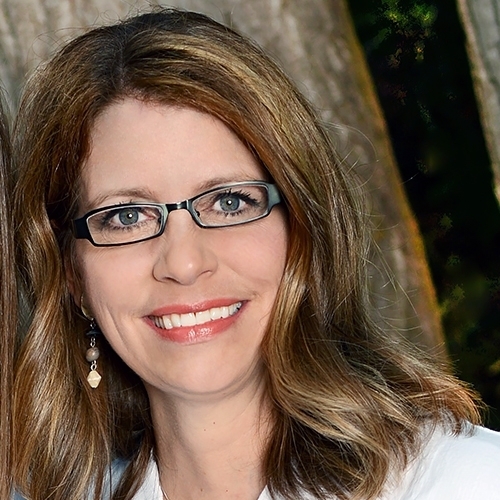
Neurologic Conditions and The Breastfed Infant

Ellen is the lactation services manager at Intermountain Healthcare Primary Children’s Hospital. She has a Master’s Degree in Public Health Nutrition, is a Registered Dietitian and an International Board Certified Lactation Consultant. Ellen has the unique advantage of using her nutrition knowledge as a lactation consultant. She has a passion for providing human milk for patients with nutritional challenges such as chylothorax and colitis. Her work on fat free human milk is published and has received national review. One of her career goals is to increase knowledge of nurses and healthcare providers regarding human milk immunology and breastfeeding thus improving lactation duration. Ellen has worked with the special needs breastfeeding dyad for the past 20 years at Primary Children’s Hospital to promote breastfeeding and human milk feeding. She designed, set up and manages the Mothers Milk Center at Primary Children’s hospital which opened in 2015. Ellen has presented at local, state and national meetings. She also has experience working at a corporate level with lactation consultants developing breastfeeding policies and protocols as well as lactation education programs for nurses and health care professionals.
Neurologic conditions often have a significant impact on the breastfeeding/chestfeeding dyad. The majority of these conditions are congenital, however some may be acquired during the first year of life. Breastfeeding/chestfeeding management of the hypotonic and hypertonic infant will be discussed. Hypotonic neurologic conditions that will be reviewed include floppy infant syndrome, infantile botulism, medullary lesions, Prader-Willi Syndrome and Trisomy 13, Trisomy 18 and Trisomy 21. The hypertonic neurologic conditions cerebral palsy and drug exposed infant will be discussed along with neural tube defects and Congenital Zika Syndrome. Case studies of special needs babies with these neurologic conditions will be presented.

Neuromusculoskeletal Disorders in the Breastfed Baby: Causes, Assessment, & Treatment

Dr. Valérie Lavigne graduated from the Canadian Memorial Chiropractic College in 1998. In July 2005, she became an IBCLC, the first chiropractor in Quebec with the title. She has her fellowship in pediatrics from the International Chiropractic Pediatric Association and has graduated in November 2014 with a Master of Science in Pediatric Musculoskeletal Health from the Anglo-European Chiropractic College. She is working in private practice in her chiropractic clinic in Kirkland, Quebec.
How comfortable are you at identifying neuromusculoskeletal issues in babies. This lecture will explore the triad aspect of breastfeeding – neurological, muscular and skeletal. A review of the causes, main conditions combined with tips to help you recognize neuromusculoskeletal issues will provide you with a more astute eye during your evaluation. Treatment options will be reviewed in addition to a review of the chiropractic and lactation literature. This lecture should create awareness amongst health professionals about the importance of treating neuromusculoskeletal issues in baby to optimize breastfeeding!

View Details / Enroll


After 37 years as an attending neonatologist and 18 years as medical director of lactation services, Nancy retired from clinical practice 2019. She graduated from medical school and did her training in pediatrics at the University of North Carolina, Chapel Hill. She did her fellowships in Neonatal-Perinatal Medicine and ECMO at UCSD Medical Center in San Diego. She has been a board-certified lactation consultant since 1988.
Nancy co-founded the San Diego County Breastfeeding Coalition in 1994. She was the Breastfeeding Coordinator for AAP CA Chapter 3 from 1992 until 2020, Board Member of HMBANA 2015-2019 and established the first Donor Milk Depot in San Diego over 25 years ago. Nancy is a past president of the Academy of Breastfeeding Medicine. She wrote, and continues to update, the very first ABM Protocol on Hypoglycemia and Breastfeeding.
In 2014 Nancy was awarded the Golden Wave Award by the California Breastfeeding Coalition for her efforts to reduce obstacles to breastfeeding in California, and the WIC Breastfeeding Champion Award in 2017. She received AAP Special Achievement Awards in 1997 and 2021 for her breastfeeding education and promotion efforts.
On a personal note, she is the mother of a (formerly breastfed) archaeology student and lives in San Diego, CA, with her significant other, their dog, Darwin, and a beautiful view of the ocean.
Topic: NICU Nutrition: Best Practice for Best Outcomes - [View Abstract]
Topic: NICU Nutrition: Current Status, Opportunities & Challenges - [View Abstract]
In the neonatal period, low birth weight, preterm, and ill infants, regardless of gestational age, have greater nutritional needs than at any other time in their lives. Without the last trimester, the preterm infant faces the most demanding growth period with a nutritional deficit. For any NICU infant, the stress of medical conditions may contribute to increased nutrient needs. Human milk is a complex fluid that simultaneously provides nutrients and bioactive components that facilitate the adaptive, functional changes required for the optimal transition from intrauterine to extrauterine life. We will discuss the goals and methods of providing appropriate nutrition for NICU infants to promote optimal short- and long-term outcomes.

View Details / Enroll
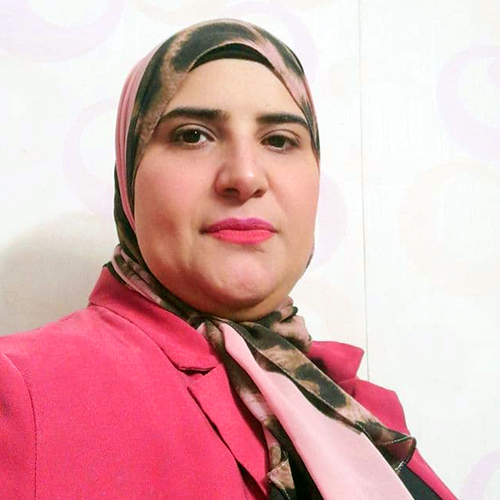

Dr.Fayrouz Essawy Pediatrician, Neonatologist, IBCLC • Neonatology Consultant • Bachelor of Medicine and surgery - Cairo University 2004 • Master degree of pediaterics - Ain shams University 2012 • Egyptian neonatology fellowship 2015 • IBCLC 2015 • LCCC course instructor & developer 2016 • Breastfeeding medicine specialist. • Baby friendly coordinator. • Harvard Graduate of Training of trainee program 2020. • Member of the Egyptian Society of Pediatrics • Member of the Egyptian lactation consultant association (ELCA) • Member of the academy of breastfeeding medicine (ABM) • Member of the international lactation consultant Association (ILCA)
The feeding of breast milk during the NICU admission reduces the risk of short-and long-term morbidities especially in premature infants. Breastmilk provides immunological, anti-infective, anti-inflammatory, epigenetic, and mucosal membrane protecting properties. The mechanisms by which human milk provides its protection are varied. These mechanisms include immunological and specific unique human milk components that are not present in formula. Thus, the feeding of mother’s own breastmilk should be a NICU priority and every NICU should have a breastmilk storage and handling policy. In this presentation we will discuss how we can counsel parents about the infection control measures and guidelines related to storage, handling and administration of breastmilk to babies in the NICU. Learn more about hospital grade pumps, pumping at home vs pumping in hospital setting, prevention and management of potential mistakes such as giving a child another mother’s milk and how to handle and store fortified breastmilk.

View Details / Enroll

Nitty Gritty Anatomy: The Cranium, Supporting Structure and the Muscle Layer

Dr. Gerner has been a Maternity and Pediatric Specialist in private practice for over 17 years with an additional focus on functional infant cranial work. She teaches other professionals to support breastfeeding across the USA and internationally. She is a wife, mother of 3 grown children, and lives in Northern CA with her husband and their 2 rescued dogs.
Topic: Introductions and Establishing the Value of Integration - [View Abstract]
Topic: Nitty Gritty Anatomy: The Cranium, Supporting Structure and the Muscle Layer - [View Abstract]
Topic: Tying It All Together- Consequences of Pathology and Ideal Collaboration - [View Abstract]
Understanding the specific infant anatomy related to feeding function can unlock the mystery of why the baby is struggling and how to correct the problem. You will see very comprehensive video demonstration of normal function and easy to understand diagrams of common subluxation patterns. This presentation focuses on: (1) The infant cranial and spinal anatomy piece by piece and how it all interacts together; (2) The main muscles of breastfeeding function; (3) clinical presentations of common feeding challenges explained through the anatomy; and (4) correlations into other common infant pathologies of torticollis and Otitis Media.

Nursing A Preemie, Perspectives For Lactation Supporters and Professionals

Paulina is the mother of three multicultural Latino children and Project Director for Lifespan Local. Paulina earned her BS in Psychology from the Pennsylvania State University, a MS in Organizational leadership from the University of Denver and is completing her PhD in Health and Behavioral Sciences at the University of Colorado - Denver. Paulina has over 18 years of experience working with families with young children. As a Maternal Child Health specialist for Jefferson County Public Health, she developed a NICU follow-up home visitation program and the pediatric emergency preparedness plan, co-founded and coordinated the Conectando Network (former Adelante Jeffco), established community navigation and lactation support groups focused on the Latino Spanish speaking community, and lead other initiatives to support leadership and partnerships among communities and organizations. During the COVID-19 pandemic, she managed the new program Whole Community Inclusion to ensure the pandemic response and recovery implementation included health equity practices that recognize the needs and the strengths of priority populations in the county. Her areas of current work include promoting perinatal and infant mental health along the continuum of care; building community capacity to navigate health and education systems; facilitating organizational change to embrace linguistic and culturally responsive practices; and establishing community-placed participatory programs to strengthen communities. She likes to be with people, learn from and with others, and connect passions for meaningful work.
Topic: From the NICU to the home: mother’s experiences - [View Abstract]
Topic: Leadership Skills in Lactation: Make Extraordinary Things Happen - [View Abstract]
Topic: Liderazgo en Lactancia - Para Alcanzar Metas Extraordinarias - [View Abstract]
Topic: Nursing A Preemie, Perspectives For Lactation Supporters and Professionals - [View Abstract]
In this presentation participants will learn about parents’ experiences with feedings in the NICU and continuation of lactation after going home, the importance of parent-child mutual-regulation and its implication in feeding success, strategies for lactation professionals to support the nursing relationship, and infant mental health concepts in relationship to feeding.
This presentation will include qualitative and quantitative data to broaden participants understanding of the context of lactation with a premature baby or a baby with special medical conditions. The participants will also receive information about multidisciplinary approaches and initiatives to support families with preemie babies.

View Details / Enroll

View Details / Enroll




